Which Country Has The Most Nukes? Putin, Trump Talk Nuclear Arsenals
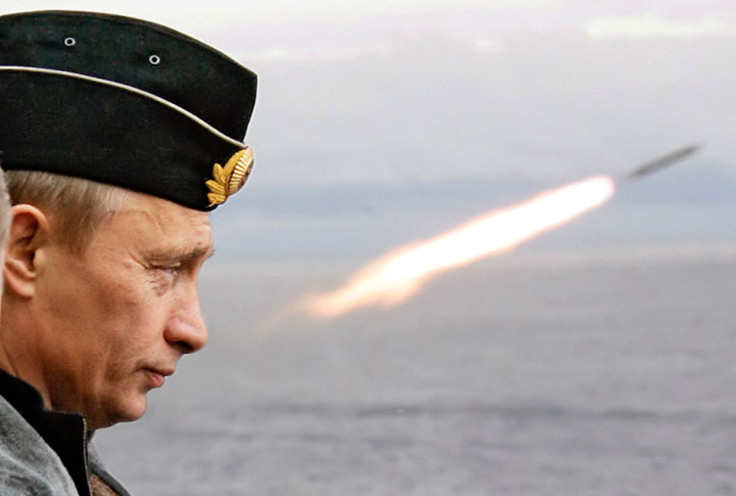
President-elect Donald Trump and Russian President Vladimir Putin both expressed their support for expanding their respective nations' nuclear capabilities in separate statements on Thursday.
The Russian leader told an annual meeting with his chiefs of defense that the Russian arsenal was already capable of overcoming any potential aggressors, but that nuclear expansion should be a goal for the upcoming year. Later that same day, Trump tweeted his desire to "greatly strengthen and expand" the U.S.' nuclear capability until "the world came to its sense" on nuclear warfare.
Both Washington and Moscow control two of the largest nuclear arsenals in the world. The United Nation's 1968 Non-Proliferation of Nuclear Weapons Treaty recognizes only five countries as being nuclear-weapon states, which represent the five permanent members of the National Security Council - the United States, Russia, China, the U.K. and France. Other countries, such as Pakistan, India and North Korea, have openly developed and detonated nuclear weapons despite not signing the treaty. Israel has intentionally hidden its nuclear program, maintaining a policy known as "nuclear ambiguity" or "nuclear opacity" through which it neither confirms nor denies its nuclear capabilities.
Nine countries in total were believed to possess nuclear weapons. Nations often keep the precise number of nuclear armaments they possess confidential, but leading experts have compiled figures estimating just how many nuclear weapons there are out there and who has them. As the two largest nuclear-capable countries consider expanding their arsenals, here's a look at the existing state of affairs:
#1 Russia
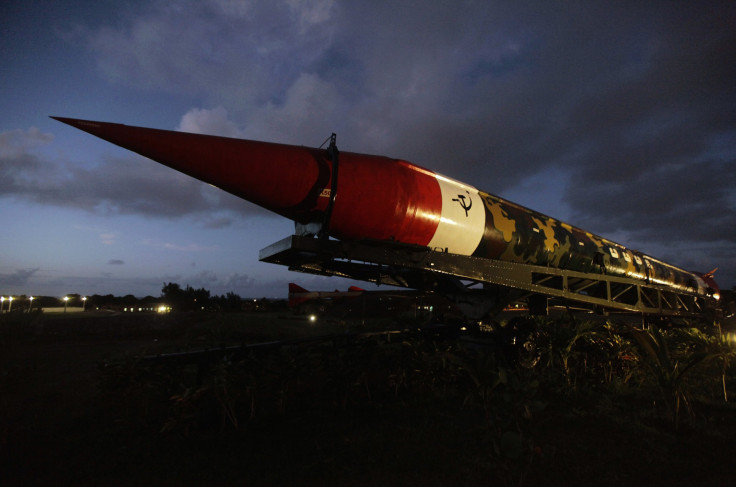
Putin was not lying when he said Russia's nuclear arsenal overshadowed its opponents. Russia is believed to possess 7,300 weapons in total. Moscow detonated its first nuclear weapon in 1949, soon after the end of World War II and during the early stages of the Cold War with the U.S. The nuclear arms race was a primary area of competition between the two countries and partially responsible for the vast size of their nuclear arsenals today.
#2 United States
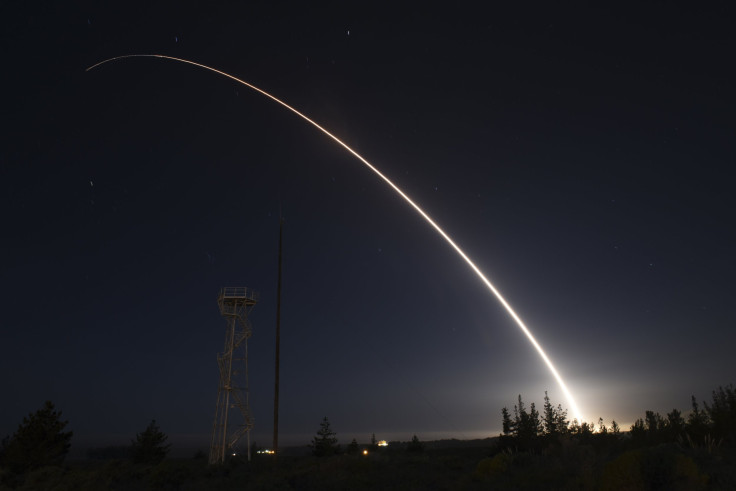
With an estimated 6,970 nuclear weapons, the U.S. is not far behind Russia. The country's modernized military, which easily dominates in number and quality of aircraft carriers, also gives the U.S. a distinct tactical advantage. The U.S. was the first nation to develop nuclear weapons and the only nation to have ever conducted nuclear warfare, launching two atomic weapons on the Japanese cities of Hiroshima and Nagasaki in 1945 during World War Two, killing an estimated 225,000 people and injuring many more.
#3 France
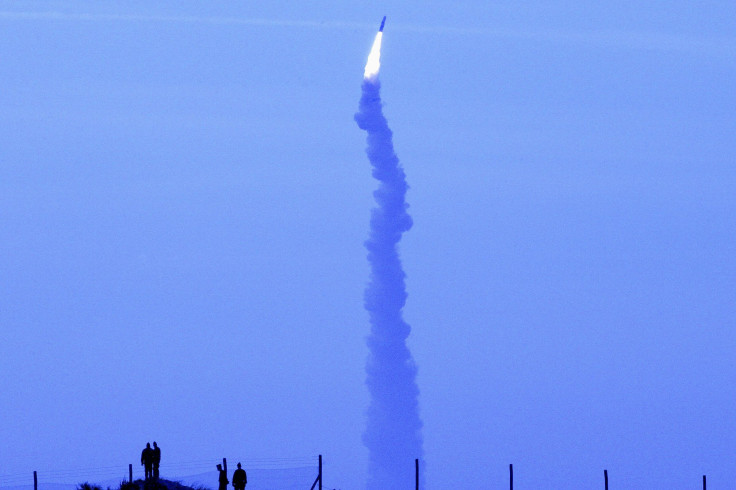
France hasn't let the end of the Cold War keep it from stockpiling up to 300 nuclear weapons, the largest stockpile in Western Europe. France conducted its first nuclear test in 1960 and, despite eliminating about half of its nuclear arsenal since the late 1980s, the country has pushed for more nuclear deterrent cooperation with the U.K.
#4 China
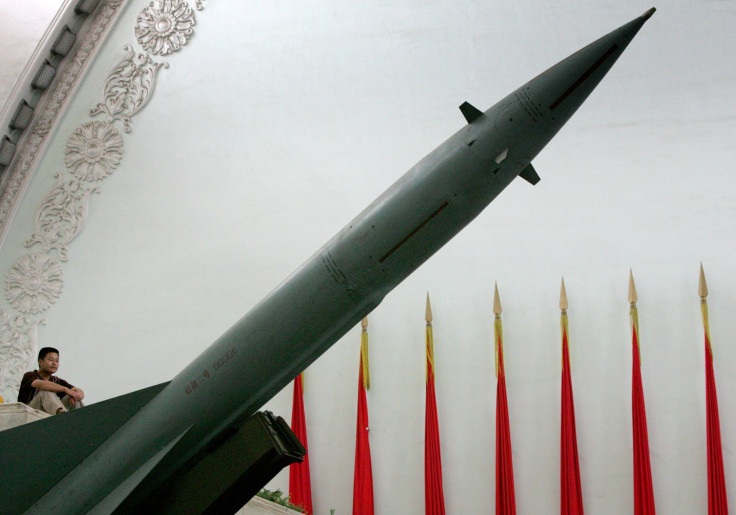
China boasts the largest nuclear arsenal in Eastern Asia, with around 260 warheads. Beijing's communist government began pursuing nuclear technology soon after taking over in 1949 and conducted its first nuclear test in 1964. Since then, China has advocated for disarmament and expressed Friday that it was "paying close attention" to Trump's rhetoric on the matter.
#5 United Kingdom
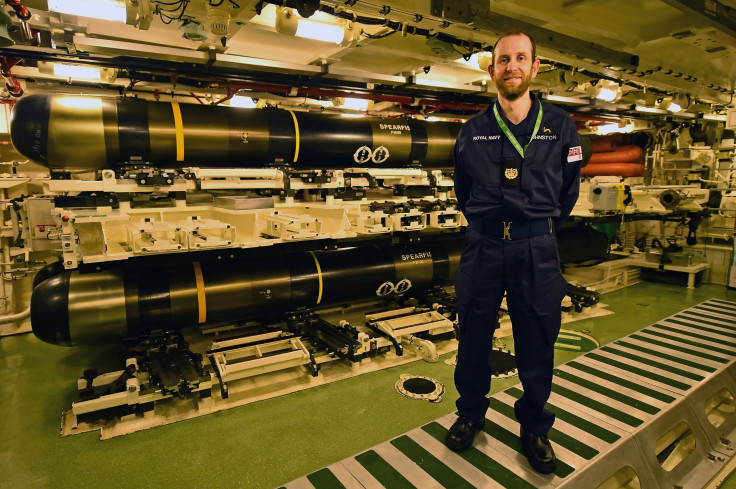
The U.K.'s political players have questioned the future of the nation's estimated 215 nuclear weapons. The country's close relationship with the U.S. and popular support for non-proliferation have led some to speculate as to whether the country's nuclear arsenal was necessary to maintain. Hawks, however, say that Russia's military expansion mean the possession of nuclear weapons is as relevant as ever.
#6 Pakistan
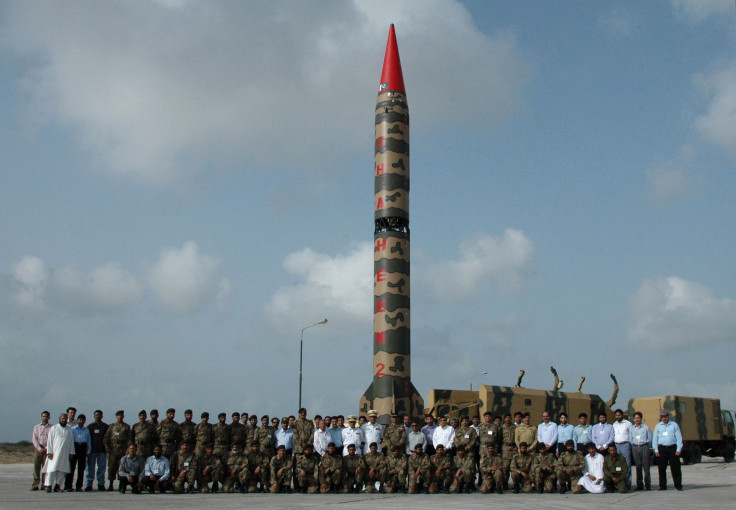
Pakistan is thought to maintain around 130 nuclear weapons. The nation's nuclear history began in 1972 when then Prime Minister Zulfiqar Ali Bhutto urged politicians to support such a program to defend against its southern rival, India, which had also pursued nuclear weapons. The Pakistani-Indian conflict has been widely considered a flashpoint for nuclear warfare and border skirmishes between the new countries often raise fears of all-out war. Pakistan has rejected to adopt the "no first-use" policy, allowing it to respond to Indian aggression with nuclear warheads. However, analysts have said the dire consequences and close proximity of the nations make this an unlikely outcome.
#7 India
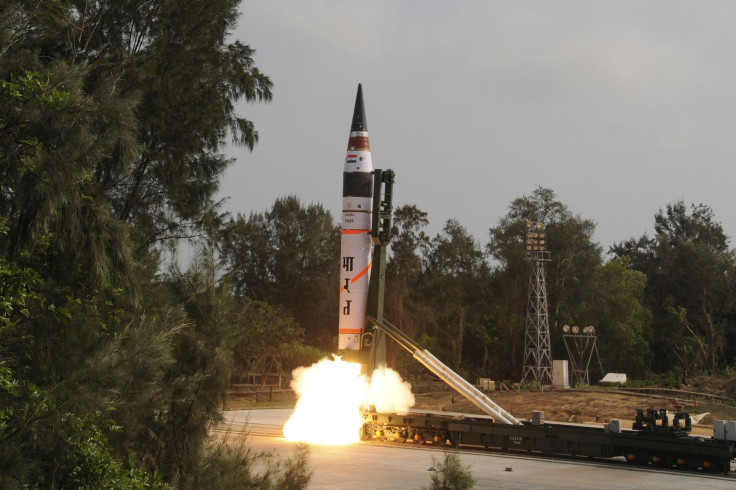
India possesses about 120 nuclear weapons, according to experts. India conducted its first nuclear test in 1974 and did not detonate another until 1998. Unlike its rival Pakistan, India has adopted a "no first-use" policy, meaning it would not launch nuclear strikes unless it was clear that the other side would attack first. Still, Foreign Secretary Aizaz Chaudhary said last year that nuclear warfare against Pakistan was not off the table. Some analysts say that, despite the tense situation between India and Pakistan, their nuclear arsenals actually deter war. Others have argued that they allow the possibility of mass destruction.
#8 Israel
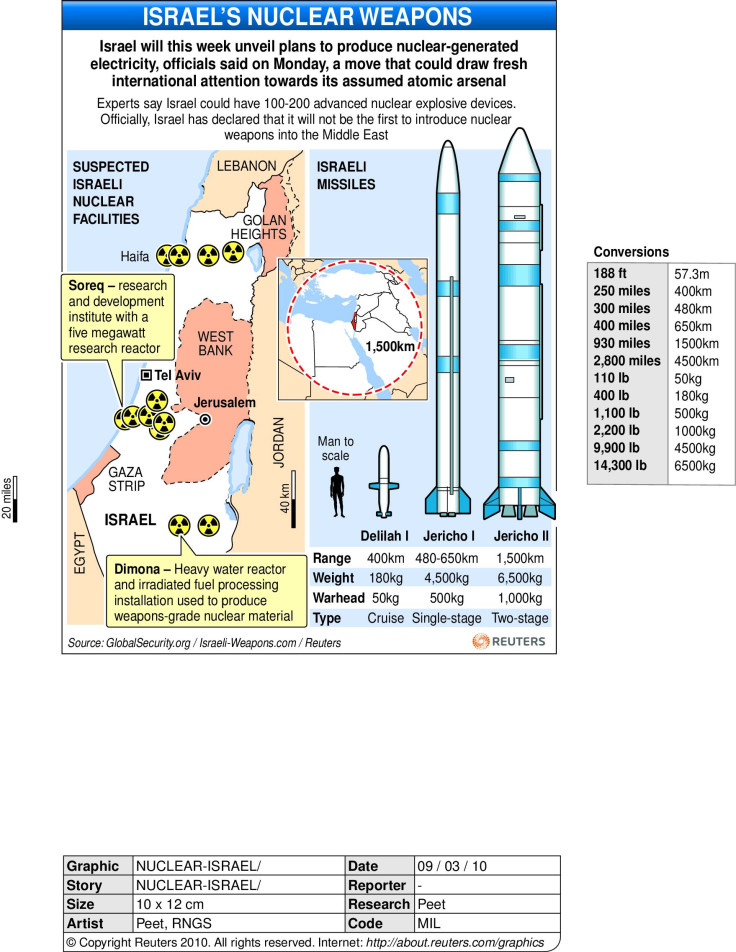
Israel deliberately maintains a shroud of secrecy over what's believed to be an arsenal of about 80 nuclear warheads. In the 1950s, Tel Aviv pursued a top secret campaign to acquire parts necessary for nuclear development with confidential help from France. Not even Israel's greatest ally, the U.S., was fully made aware of Tel Aviv's nuclear aspirations. Israel has rejected inspections of its Dimona facilities from the International Atomic Energy Agency and only allows limited access to Washington. Israel's nuclear capabilities have angered its Arab neighbors, some of which faced significant international criticism for pursuing nuclear warheads in the past and have threatened to walk out on current treaties if Israel maintains its arsenal.
#9 North Korea
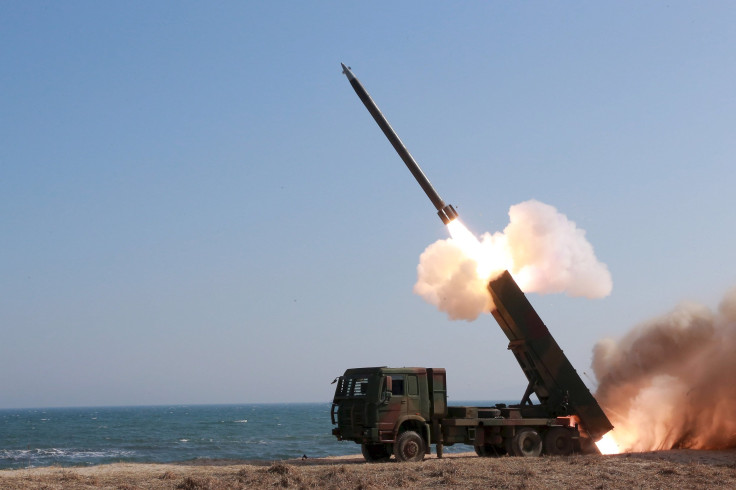
Unlike Israel, North Korea has been eager to show off its nuclear arsenal, estimated at fewer than 10 warheads. The reclusive, authoritarian state carried out its first nuclear explosion in 2006 and has conducted four more tests since. Pyongyang's aggressive nuclear rhetoric has concerned its rivals, especially its southern neighbor South Korea, which North Korea routinely threatens. The nation's nuclear program has also made it a target of severe international sanctions, which even its greatest ally China has signed on to.
© Copyright IBTimes 2024. All rights reserved.






















